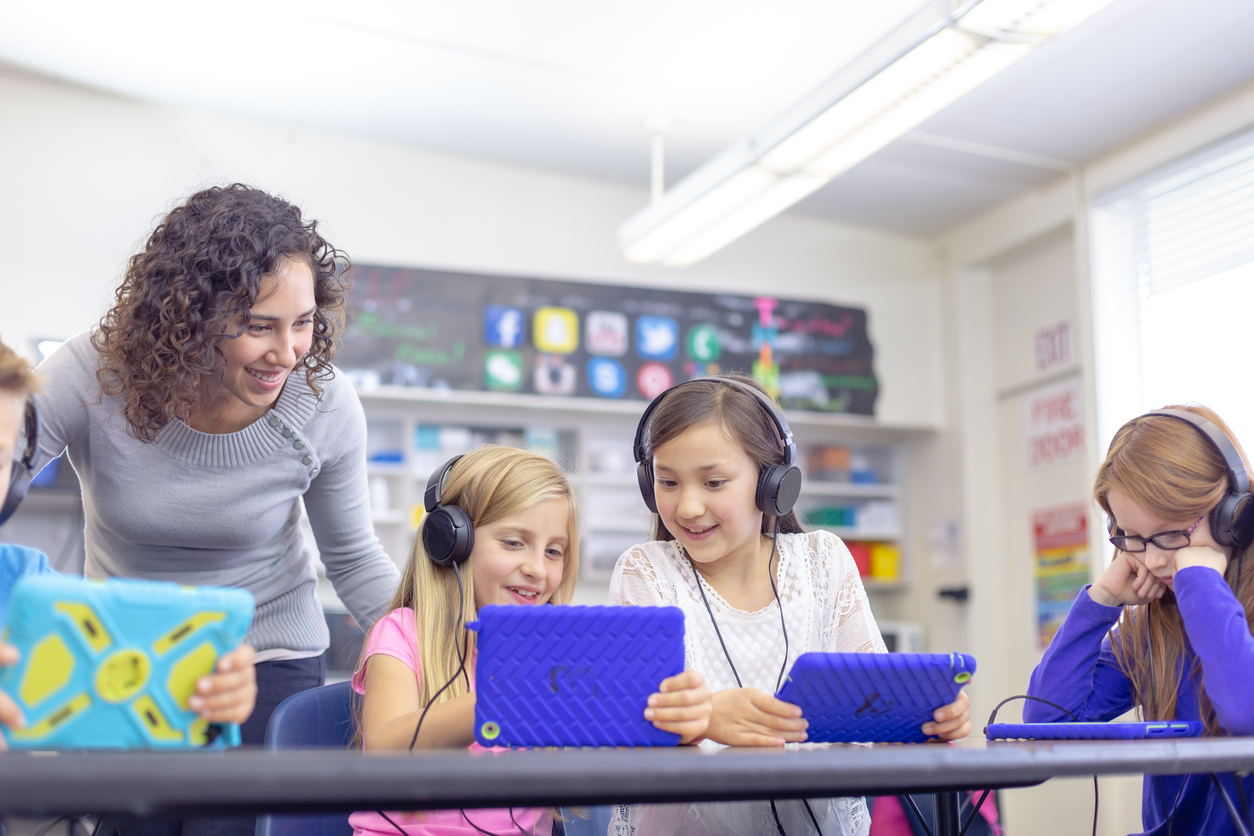Enroll in Primary Science Tuition Singapore for a Strong Science Foundation
Enroll in Primary Science Tuition Singapore for a Strong Science Foundation
Blog Article
Discovering the Different Training Strategies in Key Scientific Research Education And Learning Today
The landscape of key scientific research education is developing, with numerous teaching approaches acquiring importance in modern class. Inquiry-based learning, hands-on experiments, and the assimilation of modern technology are redefining exactly how educators engage young minds. Additionally, joint techniques and separated direction are being employed to deal with the diverse demands of pupils, improving both engagement and understanding. As we examine these methods, concerns arise concerning their efficiency and the effects for future academic practices. What might these changes in approach mean for the future generation of students?
Inquiry-Based Discovering
Inquiry-Based Discovering (IBL) is a pedagogical strategy that encourages trainees to explore scientific ideas through doubting, investigation, and hands-on experimentation. This technique stresses the role of pupils as energetic participants in their knowing, advertising important reasoning and problem-solving skills. By engaging with real-world concerns, trainees come to be interested and inspired, which boosts their understanding of scientific principles.
In IBL, teachers serve as facilitators, leading pupils as they navigate their inquiries as opposed to delivering info straight. This student-centered technique enables differentiation, accommodating different discovering styles and speeds. Trainees develop skills in formulating hypotheses, making experiments, and analyzing information, which are vital for clinical proficiency.
In addition, IBL cultivates partnership amongst trainees, motivating them to share ideas and searchings for. This collective inquiry promotes social abilities and a sense of community within the classroom. The procedure of query motivates resilience, as students learn to embrace failing as a tipping stone toward understanding.
Hands-On Experiments
Hands-on experiments are an essential element of effective scientific research education and learning, complementing the principles of inquiry-based learning. These experiments permit trainees to involve straight with scientific principles, promoting a deeper understanding through experiential understanding. By controling products and observing results, young learners can grasp abstract concepts in tangible methods.
Such activities advertise vital reasoning and analytic skills, as pupils hypothesize end results, conduct experiments, and examine results. This procedure encourages them to ask inquiries, fine-tune their understanding, and develop a scientific mindset. Furthermore, hands-on experiments can be customized to varied knowing designs, guaranteeing that all pupils have the possibility to involve meaningfully with the material.
Furthermore, hands-on experiments often encourage partnership among peers, promoting teamwork and communication abilities. Functioning in teams allows trainees to share concepts, go over findings, and pick up from one an additional, which boosts their total instructional experience.
Incorporating hands-on experiments into the primary scientific research educational program not just improves the finding out atmosphere yet additionally grows a long-lasting rate of interest in scientific research. By proactively joining their education and learning, pupils are most likely to create an interest for scientific query that prolongs beyond the class.

Innovation Combination
Integrating innovation into key science education has become progressively essential in fostering student engagement and enhancing discovering results. The usage of digital tools, such as interactive simulations, virtual labs, and educational software, gives trainees with possibilities to discover scientific concepts in innovative means. These sources promote a deeper understanding of complex subjects by permitting students to imagine and manipulate variables that would certainly be not practical in a typical classroom setting.
In addition, modern technology assimilation motivates customized discovering experiences. Trainees can advance at their own speed, reviewing tough concepts through multimedia sources, which satisfy different discovering styles. This flexibility not just supports individual growth yet likewise cultivates a feeling of autonomy in learners.
Additionally, technology functions as a bridge to real-world science, linking students with present research and specialist contributions. Access to clinical journals and online databases broadens trainees' perspectives on scientific questions and cultivates crucial assuming abilities.
Collaborative Knowing
Joint discovering plays a vital function in key science education by cultivating teamwork and communication abilities amongst students. This strategy encourages learners to work with each other, share understanding, and participate in problem-solving, which enhances their Your Domain Name understanding of scientific concepts. By joining group tasks, pupils find out to articulate their concepts, listen to varied viewpoints, and negotiate solutions, all of which are important skills in both academic and real-world contexts.

Research shows that collective learning can bring about enhanced inspiration and engagement in science topics, as students discover satisfaction in shared experiences (primary science tuition Singapore). In addition, this technique prepares pupils for future collaborative endeavors, furnishing them with the abilities essential for effective team effort in college and professional environments. Inevitably, embracing collective understanding in primary science education and learning can significantly enhance the understanding experience and advertise a much deeper understanding of scientific inquiry
Differentiated Instruction

Differentiated direction can materialize in learn this here now different methods, such as varying the material, procedures, or items of discovering. For example, educators might use tiered projects that offer varying levels of intricacy, enabling trainees to work at their particular readiness degrees. In addition, flexible organizing strategies can assist in partnership among pupils with different capabilities, promoting peer learning.
Analysis plays a critical duty in this technique, as it notifies instruction and aids teachers understand each pupil's special requirements. Developmental evaluations, such as quizzes and observations, can lead instructors in readjusting their methods to enhance finding out results. primary science tuition Singapore. Ultimately, by carrying out distinguished guideline in main science education and learning, educators can grow a more fair and effective discovering environment, encouraging all students to reach their full capacity in recognizing scientific sensations
Final Thought
In summary, the diverse mentor methods in main scientific research education, including inquiry-based discovering, hands-on experiments, innovation assimilation, collective knowing, and set apart instruction, collectively add to a more effective discovering atmosphere. These approaches advertise vital reasoning, analytic abilities, and a much deeper understanding of clinical concepts. By executing these techniques, teachers can this content produce interesting and supportive classrooms that address the varied requirements of trainees, eventually promoting a lifelong rate of interest in scientific research and boosting academic achievement.
Inquiry-Based Knowing (IBL) is an instructional strategy that encourages trainees to check out scientific concepts through questioning, examination, and hands-on trial and error.Joint discovering plays a crucial function in primary science education by fostering synergy and interaction skills among students.Study suggests that collective learning can lead to raised motivation and engagement in science subjects, as pupils discover pleasure in shared experiences.In fostering a comprehensive knowing setting, separated guideline emerges as a vital method to accommodate the varied needs and capacities of pupils in key science education and learning. Ultimately, by executing separated guideline in key scientific research education and learning, teachers can cultivate a much more fair and efficient knowing setting, empowering all trainees to reach their complete potential in comprehending scientific phenomena.
Report this page